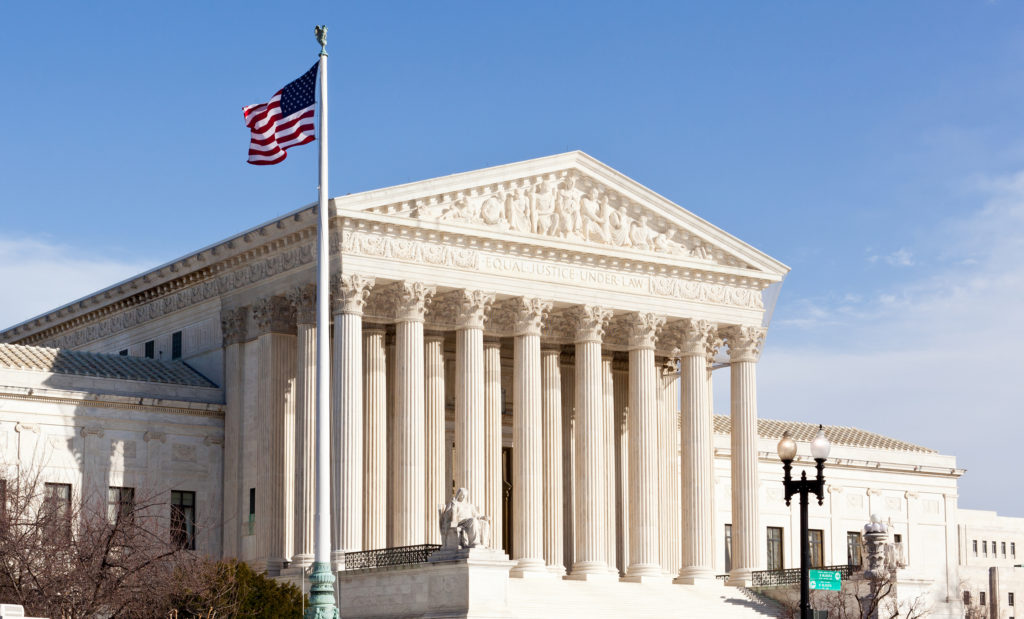
Published July 7, 2021
In the latest Supreme Court showdown involving LGBT discrimination and religious liberty, Fulton v. Philadelphia, the Court ruled 9–0 for religious liberty. The issue in Fulton was whether the City of Philadelphia could ban Catholic Social Services (CSS) from the city’s foster-care program for declining to certify same-sex couples as foster parents based on CSS’s religious beliefs about marriage. Dozens of other foster agencies were willing to certify same-sex couples as foster parents. The Court unanimously held that the City’s actions violated the Free Exercise Clause of the First Amendment.
To reach this conclusion, the majority of Justices looked to Employment Division v. Smith, a 1990 case that subjects non-neutral and non-generally applicable government policies or laws to “strict scrutiny” when they burden religious exercise. Strict scrutiny means the policies are unconstitutional unless the government can prove it has a compelling, narrowly tailored interest to justify burdening religious exercise. As Fulton explained, “so long as the government can achieve its interests in a manner that does not burden religion, it must do so.”
Because Philadelphia on paper allowed for exceptions to its non-discrimination policy (though none had ever been granted), it was not a “generally applicable” policy and thus subject to strict scrutiny. The Court explained that the question “is not whether the City has a compelling interest in enforcing its non-discrimination policies generally, but whether it has such an interest in denying an exception to CSS.” As Justice Neil Gorsuch wrote in another case, Fulton explains that “strict scrutiny demands ‘a more precise analysis’”: a government’s “general interest” in its regulations are not compelling “without reference to the specific application of those rules to [the specific party].”
With this move, the Fulton Court rejected general or “broadly formulated” sexual orientation non-discrimination goals as being a compelling government interest. Rather, the Court rightly framed the question around the party whose religious beliefs were burdened by the policy — whether the government has an interest in banning CSS when the City’s policy allowed exceptions.
Fulton’s framing of the government’s compelling interest calls into question the Sixth Circuit Court of Appeal’s approach in EEOC v. R.G. & G.R. Harris Funeral Homes, a 2018 case involving a Title VII employment discrimination enforcement action on behalf of a biological male transgender employee who was dismissed for insisting on presenting as female at work.
The funeral home raised a defense under the Religious Freedom Restoration Act (RFRA), which prohibits the federal government from substantially burdening a person’s exercise of religion unless it satisfies strict scrutiny — the same test applied in Fulton. The Sixth Circuit rejected the funeral home’s claim of a substantial burden on religious exercise. Although it could have stopped its analysis there, the court also ruled that “failing to enforce Title VII against the Funeral Home mean[t] the [government] would be allowing a particular person . . . to suffer discrimination, and such an outcome is directly contrary to the [government’s] compelling interest in combating discrimination in the workforce.”
In other words, according to the Sixth Circuit, the government had a compelling interest in “enforcing its non-discrimination policies” under Title VII. But that is the very framing rejected by the Supreme Court in Fulton.
Like the exceptions Philadelphia permitted in its non-discrimination policy, Title VII contains statutory exemptions for religious organizations and educational institutions and for bona fide occupational qualifications, including with respect to sex. Consistent with Fulton, the question in Harris Funeral Homes should have been whether the government has a compelling interest “in denying an exception” under Title VII to the funeral home.
Although the Supreme Court upheld the Sixth Circuit’s Harris Funeral Homes decision in Bostock v. Clayton County in 2020, it did not address the RFRA ruling because that claim was not appealed. The Bostock Court, however, was “deeply concerned with preserving the promise of the free exercise of religion enshrined in our Constitution” and acknowledged that “[b]ecause RFRA operates as a kind of super statute, displacing the normal operation of other federal laws, it might supersede Title VII’s commands in appropriate cases.” The Supreme Court thus left open the door for Title VII’s non-discrimination prohibitions to fail strict scrutiny in certain circumstances.
This pronouncement in Bostock coupled with the Court’s dismissal of generalized compelling government interests in Fulton undermine the claims that non-discrimination in general is a per se compelling government interest and that to achieve that interest, the government must enforce its non-discrimination policies in every instance against religious parties, regardless of any exceptions or burdens on religious exercise. Consistent with the First Amendment’s promise of free exercise, the government does not have a compelling interest in forcing religious parties to violate their sincerely held religious beliefs.
Of course, none of this is to say that the religious claim will always win. Indeed, the Supreme Court has found in certain circumstance that there is no other way to achieve an “overriding governmental interest” in a manner that does not burden religion, such as with eradicating racial discrimination after the Civil War and through Jim Crow or with the requirement to pay income taxes, even if the funds are used in ways that conflict with a taxpayer’s religious beliefs.
After Fulton, the Sixth Circuit’s compelling interest analysis in Harris Funeral Homes cannot stand. Courts cannot credit the alleged compelling government interest of non-discrimination by ignoring the constitutional guarantee of free exercise.
Rachel N. Morrison is an attorney and policy analyst at the Ethics and Public Policy Center, where she works on EPPC’s HHS Accountability Project.











